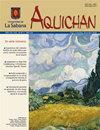孕妇面对高血压疾病时自我照顾行为意向的显著信念
Q3 Nursing
引用次数: 0
摘要
妊娠期高血压疾病是一种孕产妇和围产期健康问题。因此,确定怀孕期间健康行为决定因素之前的信念是很重要的。目的:了解孕妇面对高血压疾病时自我护理行为意向的显著信念。材料与方法:以计划行为理论为指导,采用定量方法进行描述性研究。设计问卷并评估其语义效度。该样本为便利样本,包括114名在桑坦德Piedecuesta一家卫生机构参加产前控制的孕妇,她们在2022年1月至2月期间通过电话回答了调查问卷。数据分析是描述性的,采用绝对频率和相对频率。结果:积极行为信念集中在母亲合理营养、婴儿健康生长发育、孕期疾病预防与控制、母亲放松与安心、血压控制与监测。在规范性信念方面,卫生人员、母亲、丈夫和家庭成员对每一种行为都产生积极影响。在控制信念中,以下是被承认的:拜访家庭成员促进体育锻炼的实践;在营养方面,人们有偏好低盐食品的习惯;家庭和社会支持、习惯和偏好都有利于水果、蔬菜、豆类和肉类的消费;缺乏习惯可以避免摄入脂肪、面粉、糖、咖啡因、酒精和香烟;购买力倾向于钙的摄入量;事先洗个澡可以促进休息和睡眠,去药店可以控制血压。结论:识别突出的信念,可以确定那些需要加强,协商,或重组在实现自我保健行为时,面对妊娠高血压疾病。本文章由计算机程序翻译,如有差异,请以英文原文为准。
Salient Beliefs in the Intention for Self-Care Behaviors when Facing Hypertensive Disorders in Pregnant Women
Introduction: Hypertensive disorders of pregnancy represent a maternal and perinatal health problem. Therefore, it is important to identify the beliefs preceding the determinants of health behaviors during pregnancy. Objective: To identify the salient beliefs in the intention for self-care behaviors when facing hypertensive disorders in pregnant women. Materials and Methods: A descriptive study with a quantitative approach guided by the Theory of Planned Behavior. Each questionnaire was designed and its semantic validity was assessed. The sample was convenience one and included 114 pregnant women enrolled in prenatal control at a health institution from Piedecuesta, Santander, who answered the questionnaire via telephone calls between January and February of 2022. Data analysis was descriptive, resorting to absolute and relative frequencies. Results: The positive behavioral beliefs were focused on the mother’s proper nutrition, the baby’s healthy growth and development, disease prevention and control during pregnancy, the mother’s relaxation and peace of mind, and blood pressure control and monitoring. Regarding normative beliefs, health personnel, mothers, husbands, and family members exert positive influences on each behavior. The following were acknowledged among the control beliefs: visiting family members promotes the practice of physical exercises; at the nutritional level, there is a habit of preferring low-salt preparations; both family and social support and habit and preference favor the consumption of fruit, vegetables, legumes and meats; lack of habit avoids the consumption of fats, flours, sugars, caffeine, alcohol, and cigarettes; purchase power favors calcium intake; taking a previous shower promotes rest and sleep, and going to pharmacies allows controlling blood pressure. Conclusions: Identifying the salient beliefs allowed determining those that need to be reinforced, negotiated, or restructured in achieving self-care behaviors when facing hypertensive disorders in pregnancy.
求助全文
通过发布文献求助,成功后即可免费获取论文全文。
去求助
来源期刊

Aquichan
NURSING-
CiteScore
1.10
自引率
0.00%
发文量
32
审稿时长
>12 weeks
期刊介绍:
Aquichan, a journal of medical and health sciences from the field of health sciences and, more specifically, nursing, publishes articles resulting from investigations from a point of view of epistemology, evidence-based practice, chronic care, promotion and prevention. The articles are for the academic and scientific community, both in Colombia and abroad.
The journal accepts original, previously unpublished papers in Spanish, English, and Portuguese, which are the product of a research or a review and which are not being evaluated by other scientific journals, either in print or electronic form.
 求助内容:
求助内容: 应助结果提醒方式:
应助结果提醒方式:


